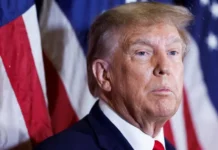
It wasn’t until 2nd September 2013, that an American business mogul and maverick politician, Donald John Trump tweeted: “If the U.S. attacks Syria and hits the wrong targets, killing civilians, there will be worldwide hell to pay. Stay away and fix broken U.S.”
Sounding so conservative and ‘anti-US world police’, perhaps no one could possibly imagine back then that Trump would be president today. His remark was significant to relent on the position of the “American Exceptionalism” – a prelude to the United States global empire.
What is the American Exceptionalism?
American Exceptionalism in the context of nationalism is the imperial objective of the United States government after World War II and entering into the Cold War to seek global empire or superiority. The event of 9/11 attack engendered the super patriotism in the United States to reinforce their supreme powers in the world community. Prior to that, the term “American Exceptionalism” was coined by the French aristocrat – Alexis de Tocqueville, in his book “American Democracy” – in which he conceives the United States democracy as an ideal transformation of the Athenian democracy. However, a little non prejudicial look would doubt this today.
In this present day, all it took was 59 missiles launched from two U.S. Naval destroyers in a one-off strike to the Syrian airfield to pin the way the world looks at America and the West. Just like that, the chemistry has changed. American Exceptionalism is making a comeback.
The United States Foreign Policy under Obama saw somehow an apologetic means that appeared to have downgraded the power of America in the global perspective. And Hillary Clinton, as secretary of state, told the world community she would be using “soft power” to achieve her goals. Regardless, the United States of America remained the global superpower, although Clinton and Obama playing the soft-card in volunteering to the world have projected a weak United States to the conservative society in America. America’s airstrike in Syria is indicative of the U.S primacy and its geostrategic desire to exercise power or influence beyond its borders to alter – to a degree that affects America’s interest – the existing geopolitical state of affairs.
What does the United States seek to achieve in Syria?
In May 2013, when Obama fell short to act on his red line – insisting that there would be serious consequences if Syria used chemical weapons – it was debunked by a United Nation’s diplomat that the Sarin gas attack was from the Rebel. When they denied this as a false flag, Obama did nothing. Now you can debate about the details of the situation on the ground in Syria – both then and now – all day long. You can go ahead and indulge in false flag talk about where the truth actually lies.
Definitely President Trump and his diehard MAGA contingent and supporters are in for the mission to unapologetically attack Assad’s regime. But to question his statement, could “there be a worldwide hell to pay”? By 1939, Hitler had already resorted to whatever way to invade Poland and to capture the Free City of Danzig – deeming it as an indisputable safeguard for the qualitative make-up of the Germany people and their economic interest. Hitler and Ribbentrop in their tact actions went on to negotiate security pact with Stalin and Molotov to thwart the possibility of Russia attacking the Reich in the out coming war with the rest of Europe.
Currently, POTUS amiable relationship with Putin has brought a high level of consternation from most Americans – considering the heightened tension between Russia and the United States following the Cold War. The current US Secretary of State, Rex Tillerson has ties with President Vladimir Putin of Russia. They have been associates since Tillerson represented Exxon’s Mobil interests in Russia during President Boris Yeltsin‘s tenure. Obviously, this is checkmate at Russia as America move in to attack its strongest ally, Syria.
What could be the outcome of US military strikes in Syria?
Amid the economic sanctions imposed on Russia over the decades, although efficient and sophisticated, Russia’s military prowess is sapped to contest in the world domain. The United States is the superpower, and not the other way round, and it’s unlikely that Russia will provoke a military confrontation with a superior military force – assuming it knows U.S. threats of military forces are credible, which it presumably now knows.
This is not some all-out attack to take down the Syrian president. It was a message. Perhaps those untimely celebrations of the West’s decline should take this to heart.



